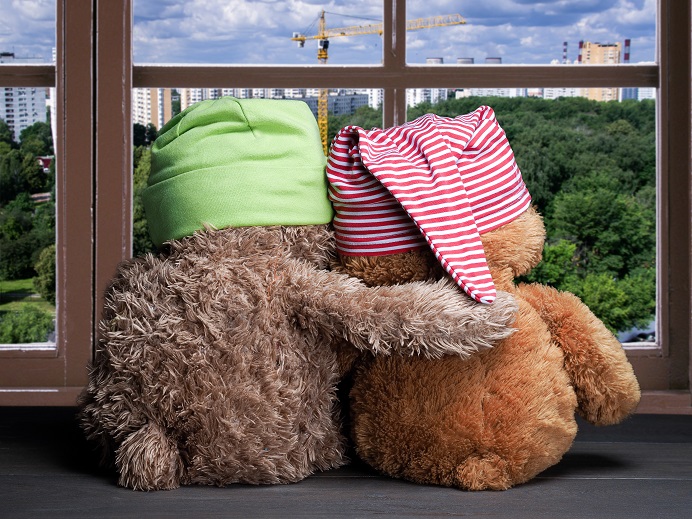Anxiety and angst seem such an adult thing to endure. After all, why should kids be anxious? They don’t have to bear any big responsibility, or shoulder any burden. So what would cause anxiety in kids? And how to deal with an anxious child?
According to the American Academy of Pediatrics, anxiety disorders are the most common types of disorder in children. But let’s take a step back and look at what anxiety is.
Anxiety is a feeling of worry, fear, nervousness or unease. It is a reaction to change or a stressful event. Most if not all children feel anxious at some point or other during childhood. Which is normal and usually temporary and harmless, and the cause is known. Whether it is starting nursery or a new school, moving house or country or having a new baby in the family. Problems in school including bullying and not keeping up with schoolwork can also cause great anxiety. For older kids especially. These are all stressful situations where children might justifiably feel anxious, and if dealt with correctly, are a passing phase.
Teaching your child how to deal with anxiety is an essential life skill that will help them not be overwhelmed during stressful events in their life.
How can you tell if your child is anxious?
Anxiety manifests itself in children almost the same way it does in adults, so it is usually quick for you to identify the tell-tale signs –
Physical manifestations can include:
- – Nausea and tummy aches.
- – Difficulty sleeping or waking up with bad dreams.
- – Headaches, dizziness, breathlessness.
- – Loss of appetite.
- – Being unusually clingy.
- – Unusually angry or irritable and crying a lot.
- – Bedwetting.
Psychological manifestations can include,
- – Feeling restless and having difficulty concentrating.
- – Isolation and loneliness.
- – Fearing the worst and feeling jumpy and nervous.
Anxiety in toddlers and younger kids
Identifying the problem might be a little tricky. With toddlers, despite the lack of full communication and self-awareness, the problem is usually known.
Starting nursery.
They experience separation anxiety – they think mummy is not coming back. But after a short period of time they are fine as they realize that someone will be there to take them home.
A drastic change in surroundings.
Perhaps you have gone away for the summer to escape the heat and your toddler has to get used to new and unfamiliar surroundings. A change in routine can also affect toddlers. In such cases reassurance and quality time are a huge comfort and introducing a routine that offers them the security they need will help settle them.
Mumzworld Tip – When travelling, take a few favorite toys as familiar objects are comforting to toddlers.
Anxiety in older kids
With an older anxious child, getting them to open up can sometimes be tricky. Opening a dialogue with them is key. If a child is bullied or has trouble with school work might not be something they want to admit to. Giving them examples from your childhood and offering them a non-judgmental space where they can feel safe to talk is essential. We should Teach them what anxiety is. How to recognize it, and assure them that it happens to just about everyone at one point or another. This can make them feel more comfortable and not isolated and alone. Once the root problem has been identified, you can work through it with them providing the support they need dependent on the situation.
When does anxiety become a disorder?
According to Dubai-based Psychologist Linda Sakr,
“Anxiety can become a disorder if there is no intervention or if the intervention wasn’t done properly. Getting to the root of it is key for the child to move on. If you don’t address the root cause properly, the anxiety can progress into a disorder and their personality might be altered. Better to nip it in the bud.”
Realizing that something is wrong is halfway to solving the problem, and usually your instinct is the best guide you have as a mum.







Pretty nice post. I just stumbled upon your blog and wished to say that I have truly enjoyed surfing around your blog posts. Thanks and keep up the great work!